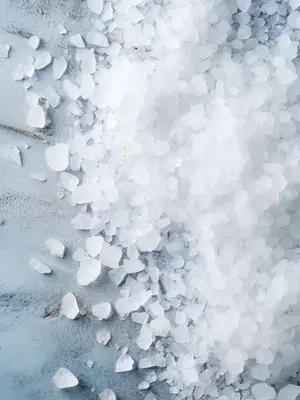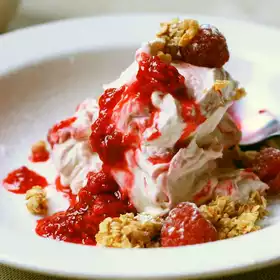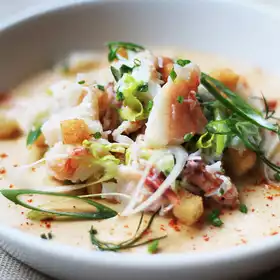Salt
Salt is one of the most fundamental ingredients in cooking, with evidence of production dating back to 6000 BC. Its ability to preserve and enhance the flavour of food has made salt an essential culinary ingredient throughout history. The early British Celts produced salt by boiling seawater in earthen vessels. By the Middle Ages, British towns like Droitwich and Cheshire were renowned for their salt production. Today, salt remains a staple in British kitchens.
Salt consists primarily of sodium chloride and occurs naturally in seawater and mineral deposits. Table salt sold in the UK typically contains added iodine and anti-caking agents. The popularity of specialty salt products like sea salt, rock salt and flaky finishing salts underscores salt's importance in cooking.
Salt works to suppress bitterness and enhance natural flavours. It also facilitates chemical reactions that create new flavours when applied before cooking. Salt regulates yeast activity when baking bread. It is used to preserve and cure meats like bacon, ham and smoked salmon. Salt also enables emulsification and gives structure to processed foods like cheese.
From its ancient roots in food preservation to its current role elevating flavours, salt remains an indispensable ingredient. British cuisine showcases the myriad uses of salt across an array of savoury dishes, baked goods and preserved foods. When used judiciously, salt makes an essential contribution to the enjoyment of food.

Nutrition
| Per 100 g | Daily Value | |
| Calories | 0 | 0% |
| Total fat | 0 | 0% |
| Saturated fat | 0 | 0% |
| Protein | 0 | 0% |
| Sodium | 38395 mg | 1600% |
| Potassium | 0 | 0% |
| Cholesterol | 0 | 0% |
| Carbohydrates | 0 | 0% |
| Fibre | 0 | 0% |
| Sugar | 0 | 0% |



